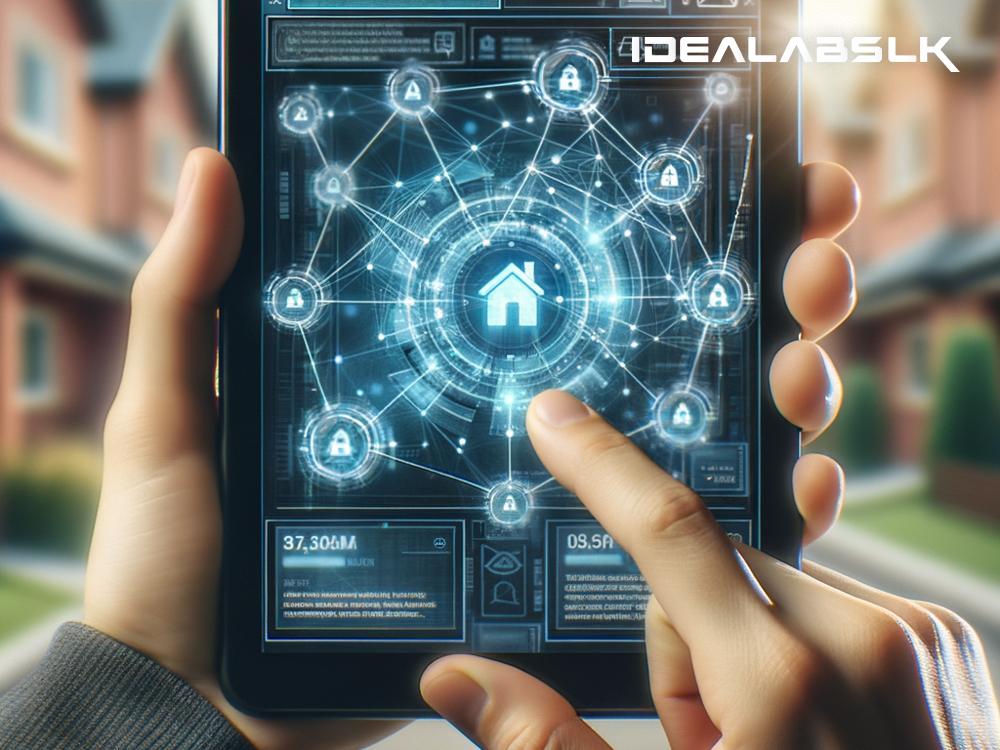Unraveling the Power of Blockchain in Transforming Real Estate Mortgages
The real estate industry, particularly the mortgage sector, is on the cusp of a revolution, thanks to the integration of blockchain technology. This digital transformation is poised to streamline processes, enhance security, and improve transparency, making the journey of buying a home smoother than ever before. So, what exactly is blockchain, and how is it set to reshape the landscape of real estate mortgages? Let's dive in.
Understanding Blockchain: A Brief Overview
At its core, blockchain is a type of database, but not in the traditional sense. Imagine it as a digital ledger that records transactions across several computers in such a manner that the registered transactions cannot be altered retroactively. This innovative technology is the backbone of cryptocurrencies like Bitcoin but its potential extends far beyond, into industries such as healthcare, finance, and notably, real estate.
The Impact of Blockchain on Real Estate Mortgages
Simplifying Processes
The journey of securing a mortgage is often tedious, fraught with endless paperwork, verification, and middlemen, each adding layers of complexity and time. Blockchain introduces the possibility of making this process straightforward and much faster. How? By maintaining a secure, immutable record of property ownership and financial transactions on a transparent ledger. This not only accelerates the verification processes but also reduces the risk of errors, fraud, and duplication.
Enhancing Security
One of the paramount concerns in real estate transactions is security. Blockchain's architecture inherently ensures high levels of security. Since the information on a blockchain is distributed across a network of computers, altering any data would require an impossible level of computational power to override the entire network. This characteristic significantly minimizes the risk of fraud, making it a robust system for recording property ownership and mortgage liens.
Improving Transparency and Trust
The opacity in current real estate transactions can often lead to mistrust and confusion. Blockchain technology promises to usher in an era of unprecedented transparency. With blockchain, all parties involved in a mortgage—buyers, sellers, lenders, and lawyers—can have access to a single source of truth, with every step of the transaction process recorded on a shared ledger. This transparency fosters trust among parties, ensuring everyone is on the same page and reducing disputes over title ownership.
Reducing Costs
Real estate transactions are notorious for their hidden costs and fees, primarily due to the involvement of various intermediaries such as brokers, legal advisors, and government registries. Blockchain can streamline these interactions by automating many of the legal and regulatory compliance processes through smart contracts. Smart contracts are self-executing contracts with the terms of the agreement directly written into lines of code. This automation could significantly lower transaction costs, making home buying more accessible.
Real-World Applications and Future Prospects
Although blockchain in real estate mortgages is still in its infancy, some forward-thinking companies and governments are already exploring its potentials. For instance, certain countries are investigating the use of blockchain for recording land registries and titles, aiming to reduce fraud and boost investment in real estate. Companies are experimenting with tokenization, where property ownership is divided into tokens on the blockchain, allowing people to own fractions of properties and thereby democratizing real estate investment.
Looking ahead, as blockchain technology matures and regulatory frameworks adapt, the possibilities are boundless. We could see fully digitized mortgages becoming the norm, with every step, from application to approval to closing, completed online securely and transparently. This digital transformation could open up the real estate market to a broader range of participants, breaking down barriers to entry and making homeownership more achievable for many.
In Conclusion
The fusion of blockchain technology with real estate mortgages holds the promise of a future where buying a home is less cumbersome, more secure, and transparent. While there are certainly challenges and hurdles to overcome, particularly regarding regulation and adoption, the potential benefits are too significant to ignore. As this revolutionary technology continues to evolve, it could very well redefine the fabric of the real estate industry, making the dream of homeownership a smoother and more accessible reality for people around the globe.

